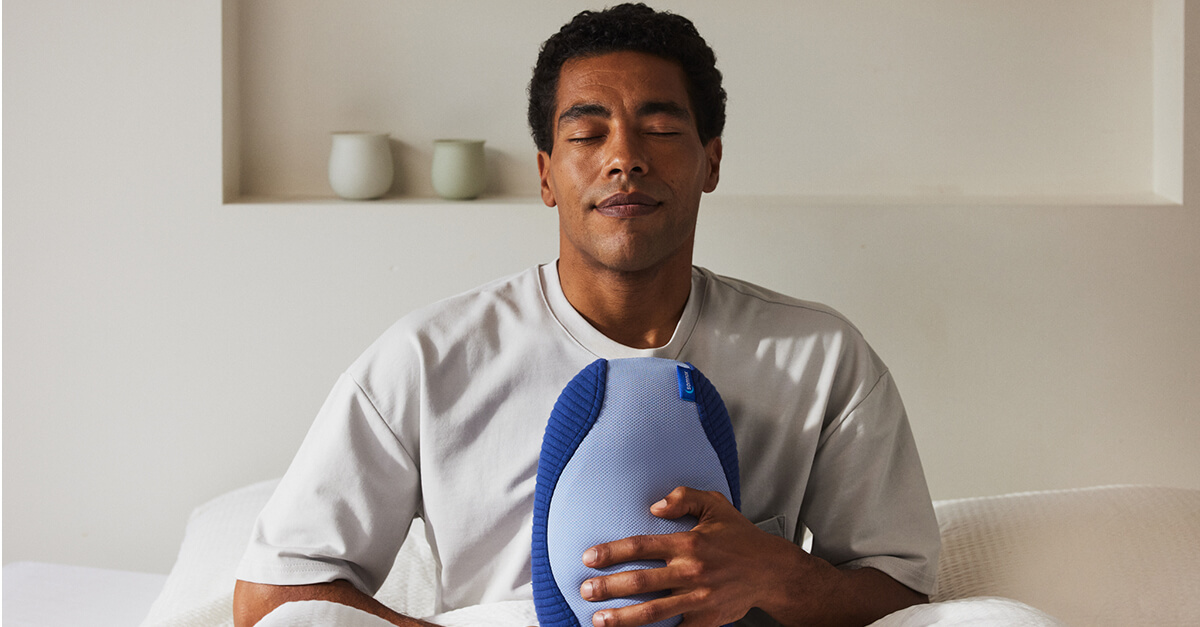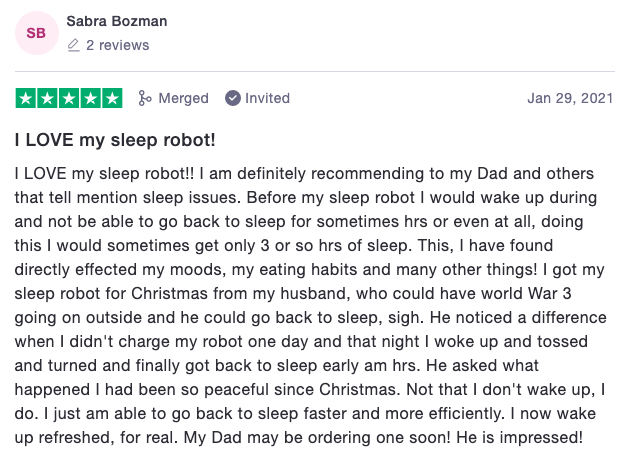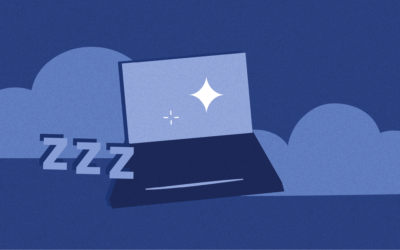There is absolutely nothing as frustrating as going to sleep for the evening and waking up the next morning feeling even more tired than when you went to bed. In this article we will take a look at why you are waking up tired every morning and what you can do to help yourself get a good night’s sleep.
Table of Contents
A Few Reasons Why You Are Waking Up Tired
● Thyroid Disease – A possible reason why you could be waking up tired in the mornings could be because you are suffering from fatigue. Additionally, you may experience moodiness, weight gain or muscle and joint pain.
● Adrenal Fatigue – This condition is caused by a hormonal imbalance that causes your body to excrete an excess of cortisol and adrenaline.
● Chronic Fatigue Syndrome – This is a condition similar to adrenal fatigue but it is more common in women than in men.
● A Sedentary Lifestyle – You may be surprised that sitting around not doing anything could be making you more tired. Not moving enough will cause you to feel tired, sluggish and you may even experience mood imbalances.
● Depression – One of the most common symptoms of depression is feeling tired and fatigued.
● Inconsistent Sleep – If you do not get a solid eight hours of sleep each night you may experience fatigue when you wake in the mornings.
● Anemia – Having insufficient levels of iron in your blood could cause you to feel tired no matter how long you sleep at night.
● Dehydration – This one may be quite surprising; however, dehydration is one of the most common reasons that you feel tired.
What You Can Do To Fix It
Control your breath
Use breathing techniques to breathe slower. This helps tremendously with calming down and will impact how quickly you fall asleep. You can follow the 4-7-8 routine:
- Exhale completely through your mouth, making a whoosh sound.
- Close your mouth and inhale quietly through your nose to a mental count of four.
- Hold your breath for a count of seven.
- Exhale completely through your mouth, making a whoosh sound to a count of eight.
This is one breath. Now inhale again and repeat the cycle three more times for a total of four breaths. If you are not getting enough air, try it with 4-4-4 seconds first.
Try our Somnox sleep solution
Have you already tried everything to fall asleep? Breathing is your answer. We invented the Sleep Robot that guides you towards relaxed breathing and helps you fall asleep faster, worry less and wake up rested. Our Sleep Robot is comfortable, easy to use (also in the dark!) and therefore feels like a sleep-buddy. Through relaxed breathing, the Sleep Robot can help you calm your breathing and unwind.
Because of the subtle sounds and movements the robot makes, that mimic human breathing, it is easier for you to relax. So: no longer staring at the ceiling all night, worrying about stuff. Not only do you fall asleep feeling more relaxed, you’ll also sleep faster and longer. All that using no medicine at all: the Sleep Robot works in a totally natural way. With the Sleep Robot next to you, you feel safe and secure. It keeps you company and helps to distract your thoughts from the things that keep you up at night.

How does it work? The Somnox Sleep Robot guides your breathing. By holding the robot, you feel the breathing rhythm that the Sleep Robot produces. You will (subconsciously) adapt your own breathing to it. By slowing down your breathing you will calm down and relax. The Sleep Robot has sensors that can detect your breathing rate. This will be used to generate a breathing pace that is synchronised to you to slowly guide your breathing towards slow deep breathing techniques proven to reduce stress and anxiety. The Sleep Robot can play soothing sounds, nature sounds, or white/pink noise sounds. These sounds have a relaxing effect and can enhance the calming effect of the Sleep Robot.
Wondering whether Somnox is right for you? Take our quiz, and get our free advice.
Improve The Quality Of Your Sleep
When you wake up feeling tired in the mornings it is time to look at your routine and decide what you can change so that you can get a restful night’s sleep. A good example of routine is to go to sleep at the same time every night. It is also a good idea to stop drinking caffeine after 4 in the afternoon and remove anything from your bedroom that may be disturbing you.
Have a screen-free hour before bed
Falling asleep is the process of your body and mind winding down after a stressful day. You can decide whether that process starts an hour before you go to bed, or whether that process only starts after you put your phone away one hour into laying in bed. Looking at screens like your laptop or smartphone strains your eyes and prevents your body from producing Melatonin, which regulates your sleep-wake cycle. Instead of browsing the Internet, use that hour for relaxing activities. You can read with dim light, draw, meditate, write or do something else that helps you calm down. Give your body a chance to wind down so you can fall asleep quickly.
Count backward from 200
This is a simple but effective technique. Mentally count from 200 backward with your eyes closed. Counting sheep is a great alternative to this and great for boring yourself to sleep.
The act of focusing on something calming prevents yourself from getting excited because you’re thinking about doing things. Research shows that just thinking about an activity like playing tennis is enough to raise your blood pressure. Thinking of mundane and calming scenarios that don’t involve yourself moving is best for calming down.
Use the 2-minute technique
The US military developed this technique to allow jet pilots to fall asleep quickly between missions. It works like this:
- Relax all the muscles in your face, including tongue, jaw and the muscles around the eyes
- Drop your shoulders as far down as they’ll go, followed by your upper and lower arm, one side at a time
- Breathe out, relaxing your chest followed by your legs, starting from the thighs and working down
Spend 10 seconds trying to clear your mind before thinking about one of the three following images:
- You’re lying in a canoe on a calm lake with nothing but a clear blue sky above you
- You’re lying in a black velvet hammock in a pitch-black room
- You say ‘don’t think, don’t think, don’t think’ to yourself over and over for about 10 seconds.
If you get used to this technique, meaning that you use it every time you fall asleep for multiple weeks, it’ll start working like magic.
I calm my breath down with the 4-7-8 technique for 5 breaths, then I start with this 2-minute routine. If that’s not enough, I’ll either start counting from 200 backward or get up and try again after 15-20 minutes.
Watch your nutrition and caffeine intake
Caffeine affects your body for 4-12 hours after ingesting it. This means that having a coffee at lunch can impact your sleep, even though they are quite a bit apart. Eating can have just as much of an effect on your sleep. Try not to eat anything in the last 2 hours before going to bed. You can still drink some water if you need to. Getting the right nutrients has major effects on your life so it is always worth sorting that out.
Carbohydrates leave you feeling tired and sluggish. You will be surprised by the massive difference in your quality of sleep if you switch out processed carbs for whole grain options that have a low glycerin value. These types of foods will sustain your blood sugar levels for an extended period of time helping your body rest while you sleep.
Improve your sleeping environment
Is your room too warm? Does light get into your room at night? Is there a lot of noise coming in from outside? What about your pillows and your mattress?
All these factors impact the quality of your sleep and you should look into all of them. Sleep takes up roughly one-third of your day and will continue doing so for the rest of your life, so it is worth optimizing.
Generally, an optimal sleep environment is:
- Cool
- Dark
- Quiet
- Comfortable
- Stress-free
- Only used for sleep or intimate relations
Stay Hydrated
Dehydration can contribute significantly to feelings of fatigue. Make sure that you are drinking at least eight large glasses of water every day. Additionally, if you lead an active lifestyle, are pregnant or nursing you should be drinking more to keep yourself hydrated. It is also a great idea to keep a bottle of water on your bedside table so that you can sip on the water during the night.
Exercise
Getting a little exercise during the day will help you sleep much better at night. Not only does regular exercise boost your general health but it helps to oxygenate your blood. This will send more nutrients to your brain and heart helping them work more effectively and helping you sleep. As it uses up your energy In turn, you will sleep more and end up with more energy the next day. Fortunately, you do not have to jog five miles a day to attain these benefits. A simple 30 minutes of moderate exercise is enough to keep your body healthy and help you sleep. If you’re not into sports, you should still at least take a walk or do some lighter exercising.
Herbal Tea
If you find yourself waking up tired it is a good idea to cut out caffeine from your diet. Fortunately, this does not mean that you have to give up on warm drinks entirely. Simply choose herbal teas to enjoy in the evening instead of your usual cup of coffee. Chamomile tea is a great option if you struggle to sleep as the soothing properties of this herb has been used to help people go to sleep for centuries. Alternatively, you could opt for a cup of peppermint tea if you prefer something with a refreshing taste.
Look into other factors
Stress, kids, drugs/alcohol, sleep apnea, insomnia, and other issues can have a major effect on your sleep. All of those things affect your energy, mood, happiness, and productivity. Seek help for these kinds of issues. Home remedies and techniques can’t fix everything and there are people who work on these things professionally.
Other ways to wake up less sleepy
Waking up in the morning can be challenging, especially if you didn’t quite get enough sleep. Here’s a list of things you can do to make sure you get out of bed:
- Have only one alarm. Multiple alarms only encourage you to ignore them and make you more likely to oversleep.
- Use the 5-second rule. As soon as you hear the alarm you go 5-4-3-2-1 (out loud or in your mind) and you get out of bed. Don’t give your mind time to convince you to stay in there.
- Get out of bed. Getting out of bed is usually the hardest part, but as soon as you’re not in there anymore it is much easier to stay awake.
- Have a morning routine. I always drink a glass of water right after waking up, then I take a cold shower. A set routine can help override the emotional part of your brain.
- Turn the light on. Light tells your body that it is daytime and helps ease the sleepiness.
- Use a smart alarm clock. There are lots of different models of clocks that need more than just a press of a button to turn off. Whether you need to solve a puzzle first or go to your bathroom to take a picture, they’ll usually wake you right up. (I use the free app Alarmy for this)
- Make staying in bed uncomfortable. You can achieve this by opening the window blinds or turning the heat on automatically each morning so the bed gets too warm.
After a few days of adjusting to your new schedule, you should be able to wake up even without a clock most of the time. If you oversleep a lot, you might need to adjust your sleep time and add half an hour.
If you are looking for more great information regarding the latest health news you should click here for more.



